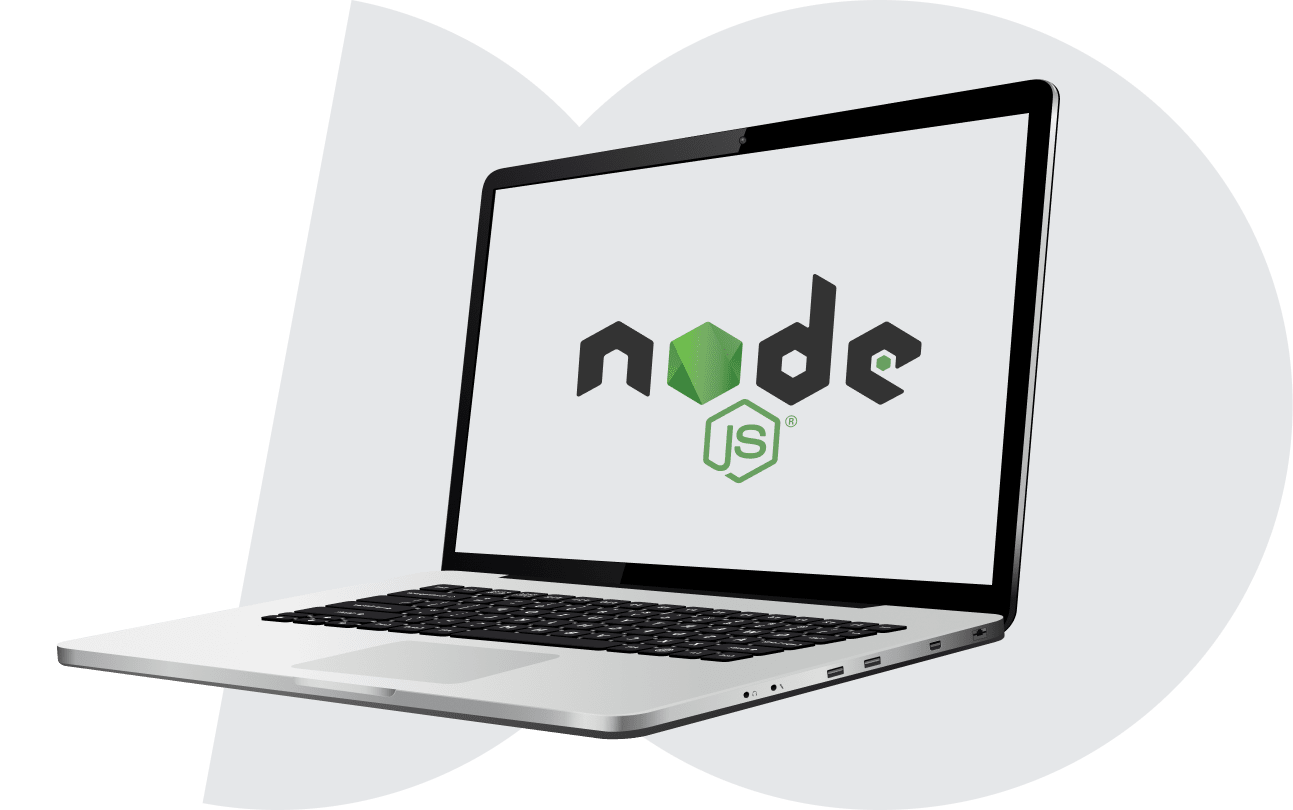- Home
- Technologies
- Node.js
- Hire Node.js Developers
Hire Node.js Developers
Hire vetted Node.js talent.
Our top 1% of tech talent has already undergone a rigorous vetting process. Get bilingual, nearshore Node.js developers on your team within 2 weeks.
500+ companies rely on our top 1% tech talent.
No time to find the top talent yourself? Skip the hassle of recruitment.




The Ultimate Guide for Hiring Node.Js Developers
Node.js is a runtime environment for JavaScript, enabling developers to execute JavaScript code on the server side. Because it’s built on the V8 JavaScript runtime engine—the same engine that powers the Chrome web browser—Node.js has widespread use in web development, server-side scripting, and scalable network applications. Despite its dominance, identifying niche Node.js developers with the right hard and soft skills can be challenging. But we've been recruiting the top 1% of tech talent since 2009, so we've created a blueprint for successful hiring.
Leveraging our extensive experience in vetting Node.js professionals, we've created this comprehensive guide to assist you in the hiring process. Here are key considerations, technical and soft skills criteria, interview questions, and FAQs related to recruiting Node.js experts to equip you with the insights needed to confidently hire the most qualified Node.js developer for your team.
Before You Start Hiring
Experience in Your Industry
Take into account experience in your industry when hiring a Node.js developer is paramount because it ensures that they not only bring technical expertise but also a nuanced understanding of your specific challenges and requirements. Industry familiarity equips developers with insights into particular tools and technologies prevalent in your sector. This helps ensure a seamless integration of Node.js with tools and third-party services essential to your operations.
Niche Experience in Node.Js
The Node.js runtime environment allows developers to execute JavaScript code server-side—so long as they have niche experience with specialized frameworks, libraries, and industry-specific challenges. Specialized expertise allows developers to bring a deeper understanding of Node.js intricacies and craft solutions that are specific to your project requirements ..
Collaborative Mindset
Emphasizing a collaborative mindset when hiring a Node.js developer is essential, given the diverse team environments in which Node.js developers work. A developer with collaborative skills is widely familiar with tools like GitHub and Visual Studio Live Share, as well as communication platforms like Slack to engage with other experts in cross-functional teams.
Location and Timezone
Considering geographical proximity and timezone alignment when hiring a Node.js developer facilitates better communication and collaboration. A nearshore developer can more promptly respond to questions or issues, participate in real-time discussions with your team, and align on a more cohesive and efficient workflow.
Timeline and Budget
A skilled developer not only brings technical proficiency but also demonstrates a track record of meeting project milestones and delivering within budget. That’s why assessing developers’ experience with project-management tools like Jira and GitLab, their familiarity with Agile methodologies, and their ability to provide realistic project estimates is important.
15 Skills Every Node.Js Developer Should Have
The Node.js runtime environment has witnessed a steady surge in popularity since its introduction in 2009. Its versatility extends to various domains, including web applications, where it facilitates the development of dynamic and responsive user interfaces. Node.js is used in server-side scripting, where it handles asynchronous operations, enhances data processing and communication, and enables the development of real-time applications, microservices, and APIs.
Because Node.js is used in many areas of development, developers’ responsibilities are multifaceted. Finding a tech expert with both hard and soft skills across a wide range of use cases is crucial for addressing the versatile demands of Node.js development.
We've outlined 15 critical skills that Node.js developers should possess:
Technical Skills to Look for in Your Ideal Node.Js Developer
1. Proficiency in JavaScript and ECMAScript Standards
Node.js is a JavaScript runtime environment so a deep understanding of JavaScript and its modern features (ECMAScript standards) is crucial.
2. Understanding of Node.js and its Frameworks
For a more streamlined app development process, developers should have deep experience working not only with Node but also with its frameworks like Express.js.
3. Asynchronous Programming
Node.js functions on a non-blocking, event-driven architecture. It's important to be familiar with asynchronous programming patterns like callbacks, promises, and async/await.
4. Front-end Technologies
In addition to JavaScript, it's important to be familiar with front-end technologies like HTML, CSS, and frameworks and libraries such as React, Angular, and Vue, particularly for full-stack development roles.
5. Security Practices
Security is a paramount concern in Node.js development. Developers must have knowledge of security practices like input validation, error handling, secure data storage, and protection against common vulnerabilities like SQL injection.
6. Database Management
Knowledge of database technologies, including both SQL and NoSQL, and how to integrate them with Node applications is important.
7. RESTful APIs and GraphQL
Developers should have experience in creating and consuming RESTful services and an understanding of GraphQL for building efficient APIs.
8. Authentication and Authorization
Using strategies like JWT or OAuth, Node developers must have knowledge of how to implement authentication and authorization.
9. Testing and Debugging
Testing and debugging are essential parts of the development process. Using tools like Mocha, Chai, or Jest, developers can create clean, functional, and performant applications.
10. Performance Optimization
Ability to analyze and optimize application performance, including memory profiling, understanding event loops, and optimizing I/O operations.
11. Understanding of Node.js Design Patterns
Node.js developers should be familiar with design patterns and architectural principles for building scalable and maintainable applications.
Soft Skills to Look for in Your Ideal Node.Js Developer
12. Problem-Solving
Problem-solving is a critical soft skill for Node.js developers who need to navigate complex coding challenges, such as resolving asynchronous callback issues, debugging intricate server-side logic, and optimizing database queries for enhanced performance. Adept problem solvers can efficiently troubleshoot issues, optimize algorithms, and contribute to the creation of scalable server-side solutions.
13. Openness to Feedback
Openness to feedback fosters continuous improvement and collaboration within development teams. Embracing constructive input allows developers to identify areas for improvement, refine their coding practices, and deepen their skills in an ever-evolving digital landscape.
14. Teamwork
Node.js developers must work with an array of professionals to bring project goals to fruition. For example, they collaborate with other developers to seamlessly integrate their work with frontend frameworks like React or Angular. They partner with database administrators to optimize data interactions and work with DevOps engineers on efficient deployment. They may also engage with UI/UX designers to ensure cohesive interface design, among other experts.
15. Self-Motivation
Node.js developers must proactively tackle challenges, stay abreast of evolving technologies, and drive their own professional growth. In the dynamic field of development, a self-motivated developer demonstrates resilience, adaptability, and an ability to deliver high-quality solutions both in a team environment and independently.
8 Questions to Identify Top Node.Js Developers
When interviewing Node.js developers, it's important to ask questions that first assess the candidates' technical skills and knowledge. Employers will also usually conduct a coding test to further assess specific on-the-job knowledge.
The following set of questions aim to uncover not only the developer's technical knowledge but also their problem-solving abilities, teamwork, communication skills, and adaptability—all crucial traits for success in a collaborative environment.
Here are a few examples of technical interview questions:
1. How do you ensure the reusability and maintainability of Node.js code?
Modularization contributes to the reusability and maintainability of Node.js code. I employ the CommonJS module system, break down complex functionalities into focused modules, and leverage npm for package management. This promotes code organization, makes for easier updates, and ensures scalability.
2. Can you explain the event-driven architecture in Node.js and how it differs from traditional server-side environments?
Node.js utilizes an event-driven, non-blocking I/O model. Its event loop enables handling multiple concurrent requests without creating separate threads. The asynchronous nature enhances performance and responsiveness.
On the other hand, traditional server-side environments tend to rely on synchronous operations, leading to potential bottlenecks.
3. How do you manage asynchronous operations in Node.js, and what are the benefits of using Promises?
I manage asynchronous operations in Node.js using callbacks, async/await, and Promises. Promises offer a clean approach by handling callbacks in a more structured manner. They enhance code readability, simplify error handling, and facilitate better management of asynchronous workflows.
4. Explain the significance of the Express.js framework and how you’d structure a basic Express application.
Express.js is a minimalist and modular Node.js framework that simplifies the development of scalable server-side applications. It offers developers a powerful set of tools for routing, middleware integration, and HTTP utility methods.
I would structure a basic Express application by defining routes, middleware, and controllers. This follows the MVC pattern, ensuring a separation of concerns.
5. What is your approach to testing in Node.js? Are there any particular frameworks or tools you prefer?
This helps you assess the candidate's approach to quality assurance within the development process.
6. Can you discuss some common security threats in Node.js applications and how to mitigate them?
This question allows you to evaluate whether and how the Node developer stays up to date with the runtime environment.
7. How do you prioritize tasks and manage deadlines when working on multiple projects?
Understanding how the candidate takes an approach to project details and the entire process is important for understanding how they will fit into your organization and culture.
8. How do you stay updated with the latest Node.js technologies and best practices?
Continuous learning with programming languages and technologies is essential for staying abreast of developments in a fast-changing field.
FAQ
Why Should I Hire a Node.js Developer?
Hiring a Node.js developer can benefit your project by providing expertise in building scalable, high-performance backend applications. Node.js is well-suited for real-time applications and microservices architecture and is efficient in handling simultaneous connections, making it a good choice for web applications.
How Important are Front-End Skills for a Node.js Developer?
While front-end skills aren't essential for Node.js developers, they can be useful. This is particularly true for full-stack developers.
Is Node ever used for mobile app development?
Node.js is primarily a server-side development tool. However, while it's not used directly for creating mobile apps, it is often used for different elements of these applications. For example, it can be used to create the backend of mobile apps and is helpful for facilitating real-time data processing in certain apps, such as chat apps.
When is it useful to work with Node development services?
It's helpful to hire NodeJS developers—in-house or outsourced—in scenarios that require real-time data processing, scalable network applications, efficient API handling, and full-stack JavaScript development. External Node JS programmers may be especially useful when you lack an in-house team with the right specializations, need additional resources, or want to ramp up your development efforts.
Do JS developers work with Node?
Yes, JS developers often work with Node. This is especially true for web developers and full-stack developers. Node allows JavaScrript to be used for server-side programming, which extends the capabilities of the language beyond the browser.
What are the main tools a dedicated NodeJS developer should know?
A NodeJS developer should have experience with Node Package Manager (npm), frameworks like Express.js, testing frameworks, databases, front-end technologies, and more. Other skills depend on the role or project you hire Node JS developers for.
What should I consider when hiring Node.js developers?
When hiring Node.js developers, start by crafting a detailed node developer job description that outlines the necessary skills, experience, and project responsibilities. This will help attract qualified candidates. Additionally, if you’re looking to outsource Node development, ensure your job description clearly communicates your expectations and project needs to find the best outsourcing partners or developers for your team.

- Hire Node.js Developers
How Businesses Can Overcome the Software Development Shortage
BairesDev Ranked as one of the Fastest-Growing Companies in the US by Inc. 5000











